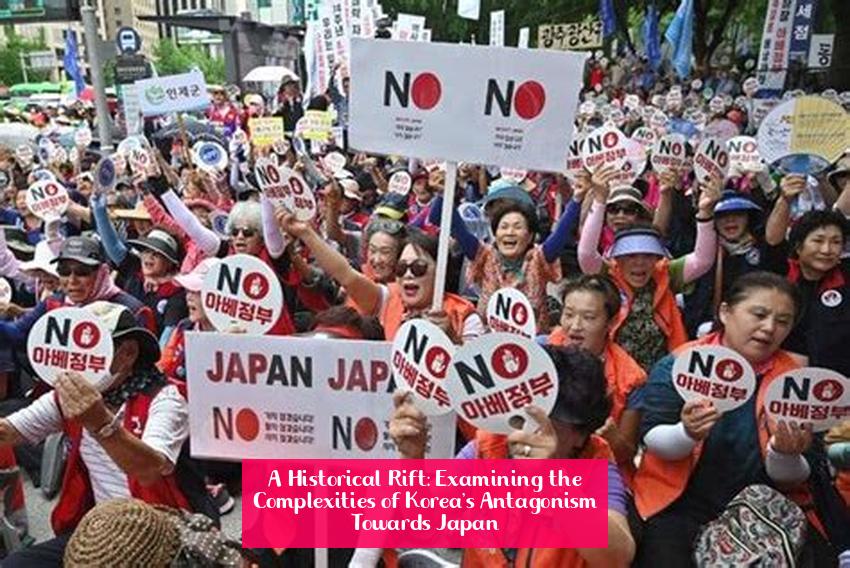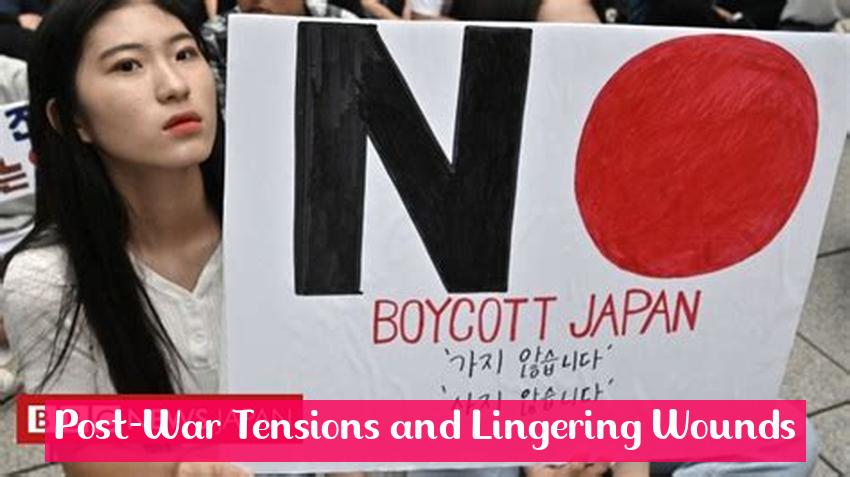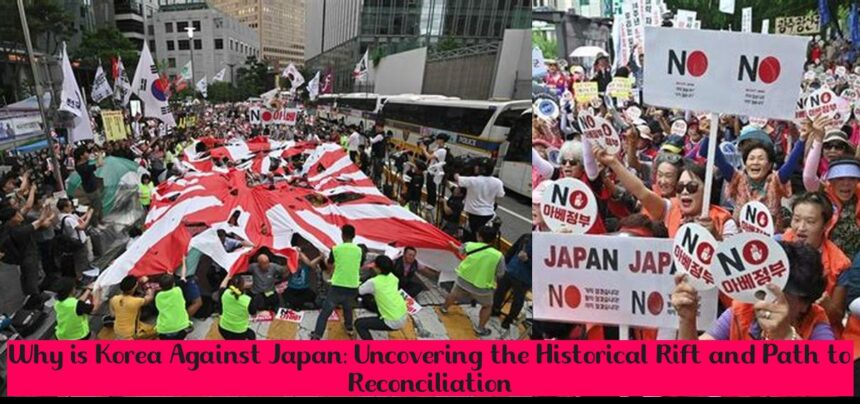Unraveling the enigmatic enmity between Korea and Japan: Why is Korea against Japan? Delve into the intricacies of this historical rift as we uncover the roots of discord, post-war tensions, and the ongoing struggle for reconciliation. Join us on a journey through the complexities of cultural exchange amidst rivalry, as we explore the road ahead to overcoming historical barriers. Strap in for a captivating exploration of an age-old conflict that continues to shape the dynamics of East Asia.
Key Takeaways
- Historical tensions between South Korea and Japan include disputes over the name of the body of water, sovereignty over rocky islets, and Japan’s colonization of Korea.
- Japanese and South Korean relations soured in the early 1990s due to the issue of former comfort women and Japan’s denial of responsibility, leading to broader disputes concerning Japan’s colonization of Korea.
- Despite rivalry, there is a significant exchange of culture and technology between Japan and South Korea, leading to hybrid innovations and collaborative projects.
- Koreans engaged in efforts to preserve their cultural heritage and resist Japan’s attempts at assimilation, maintaining traditional practices as a form of resistance.
- When the Korean War broke out, Japan achieved its role as a rear base for the supply and transit of soldiers and materials, despite being under the occupation of the Allied Forces.
- South Korea and Japan formally established diplomatic relations in December 1965, but historical issues continue to plague their ties, leading to occasional tensions.
A Historical Rift: Examining the Complexities of Korea’s Antagonism Towards Japan

Unraveling the Historical Roots of Discord
To delve into the intricate tapestry of Korea’s animosity towards Japan, one must embark on a historical odyssey, traversing centuries of cultural exchange, political turmoil, and military conflict. The genesis of this deep-seated resentment can be traced back to Japan’s colonization of Korea from 1910 to 1945, a period marked by brutal oppression, cultural suppression, and economic exploitation.
During this tumultuous era, Japan systematically dismantled Korea’s cultural identity, suppressing the Korean language, persecuting traditional Korean practices, and forcibly integrating Koreans into Japanese society. This systematic erasure of Korean heritage left an enduring scar on the Korean psyche, fostering a profound sense of resentment and a burning desire for liberation.
Post-War Tensions and Lingering Wounds

The conclusion of World War II brought about Korea’s liberation from Japanese rule, but it did not extinguish the embers of animosity. Japan’s initial reluctance to acknowledge and apologize for its wartime atrocities further exacerbated tensions. The issue of comfort women, Korean women forced into sexual slavery by the Japanese military during the war, remains a particularly sensitive and unresolved matter.
Moreover, territorial disputes, such as the sovereignty over the Dokdo/Takeshima islets, have further strained relations between the two countries. These ongoing disputes have hindered reconciliation efforts and continue to be a source of contention.
Cultural Exchange Amidst Rivalry
Despite the historical animosity, there exists a vibrant exchange of culture and technology between Korea and Japan. This mutual influence has resulted in hybrid innovations, collaborative projects, and a shared appreciation for each other’s artistic and cultural heritage.
Korean pop culture, known as Hallyu, has gained immense popularity in Japan, capturing the hearts of millions with its captivating music, dramas, and fashion. Conversely, Japanese anime, manga, and cuisine have found a receptive audience in Korea, contributing to a shared cultural landscape.
Trending — Lee Know: The Cat Butler of Stray Kids – Unwavering Love for His Feline Family
Efforts Towards Reconciliation
Recognizing the importance of reconciliation, both Korea and Japan have made concerted efforts to bridge the historical divide. Diplomatic relations were formally established in 1965, and there have been ongoing attempts to address and resolve outstanding issues.
In 2015, the two countries reached an agreement on the comfort women issue, with Japan expressing remorse and providing financial assistance to the surviving victims. While this agreement was a significant step forward, it has not fully assuaged the pain and anger felt by many Koreans.
More related > Why Did Japan Disband? Unraveling the Post-World War II Narrative
The Road Ahead: Overcoming Historical Barriers
The path to complete reconciliation between Korea and Japan remains fraught with challenges. Historical wounds run deep, and the legacy of Japan’s colonization continues to cast a long shadow over bilateral relations.
Moving forward, it is imperative for both countries to demonstrate genuine remorse, acknowledge the suffering inflicted, and take concrete steps to address unresolved issues. Open dialogue, empathy, and a willingness to confront the past are essential in fostering mutual understanding and healing.
Furthermore, continued cultural exchange and people-to-people interactions can help bridge the gap and promote a sense of shared identity. Educational initiatives aimed at fostering a deeper understanding of each other’s history and culture can also contribute to reconciliation efforts.
By working together, Korea and Japan can overcome the historical barriers that have divided them and build a future of cooperation, friendship, and mutual respect.
Why do Japan and Korea not get along?
Japan and South Korea have historical tensions stemming from disputes over the name of the body of water, sovereignty over rocky islets, and Japan’s colonization of Korea. These issues have led to occasional tensions and strained relations between the two countries.
Are Japan and South Korea rivals?
Despite historical tensions, there is a significant exchange of culture and technology between Japan and South Korea. This mutual influence often leads to hybrid innovations and collaborative projects in technology and entertainment.
Why did Korea resist Japan?
Koreans engaged in efforts to preserve their cultural heritage and resist Japan’s attempts at assimilation. Traditional Korean practices, such as language, education, and cultural traditions, were maintained and promoted as a form of resistance against Japanese cultural suppression.
What led to the souring of Japanese and South Korean relations in the early 1990s?
Japanese and South Korean relations soured in the early 1990s due to the issue of former comfort women and Japan’s denial of responsibility. This friction soon grew to include disputes concerning Japan’s colonization of Korea in general.
When did South Korea and Japan formally establish diplomatic relations?
South Korea and Japan formally established diplomatic relations in December 1965, but historical issues continue to plague their ties, leading to occasional tensions.







